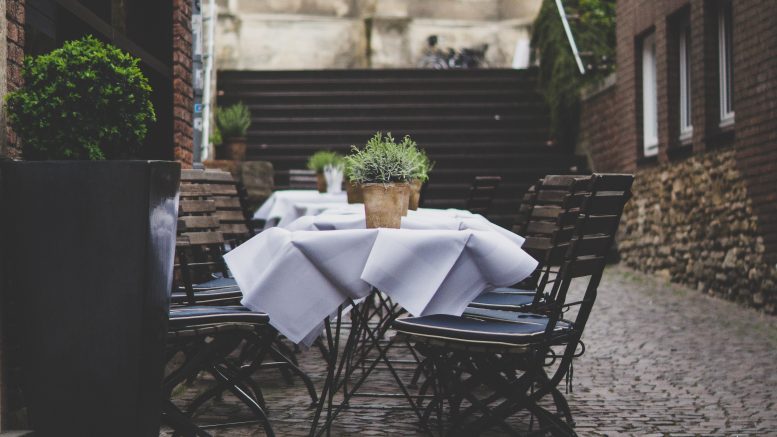It might not be your choice what you end up ordering at the restaurant
Were you feeling like steak before having a look at the menu? Sometimes what you choose when you dine out is not so much down to your choice but the restaurant’s, selling you what’s most profitable for them.
Front of house contacted Sue Bradley, Eating Psychology Coach, to understand why these tricks work so well on our subconsciousness.
Bradley says that often, when we relate to food, the limbic brain is knocking out the prefrontal cortex; so the rational, ‘adult’ part of the brain is not fully able to control the situation, effectively leaving a toddler in charge who can hardly stay in control. Moreover, Bradley continues, 30-40% of total digestive response to a meal is due to the CPDR (Cephalic phase digestive response) including taste, aroma, satisfaction and visual stimulation of a meal.
Restaurants exploit such behavioural patterns to increase their profits. So, how do they trick us?
1. They set the atmosphere
Studies have revealed that dining in a red environment with classical music in the background makes us hungry and willing to spend more, while the absence of music induces us to leave sooner.
2.They manipulate numbers
Avoiding to mention the pound sign “£” when indicating the price of a dish and manipulating that anonymous number from 10 to 8.75 or to 9.99, makes sales go up. If the customers are not reminded that they are spending money through the £ sign and the amount looks like a deal, they are likely to spend more.
3. They make you taste the food just by reading the menu
The goal is to make you mouth start watering. The closer you are to the sensory experience, the more you are likely to spend to satisfy your teased senses.
Research has found that beautifully described menus observed sales increase by 27%; and, if paired to attractive pictures, the chances to sell the dish increase by 30%.
Moreover, integrating known brands with the menu also drive sales up, like T.G.I. Fridays, which uses Jack Daniel’s sauce.
4.They hook you with childhood’s nostalgia
Seeing a name of a dish associated to Aunt Jane’s secret goulash recipe or Grandma’s fresh homemade cake, apparently, makes us feel nostalgic and emotionally drawn to that menu item.
5. They use ethnic food terms
You test new cuisines styles and dishes because you are curious about new cultures. At the Italian or Indian restaurant you are probably bound to order the most exotic-sounding dish. Yep, that’s how they get you. According to Oxford, an ethnic term makes us focus on the characteristics of the food, bringing out flavours that otherwise we wouldn’t even notice.
6. The specials
Specials come in 2 categories: sometimes menus feature dishes in boxes, bold or fancy fonts or highlighted with symbols. Some other times, the specials are indicated by the waiter who does not mention the price of the dish. Psychologically, we feel like we chose something unique, special indeed, whilst the reason is sadly the restaurateurs’ trick to sell food that is expiring soon or what is most profitable for the business.
7. The 3 digit menu item
That 3 digit sharing platter that sounds ridiculously expensive? It is. It is intentionally placed there as an anchor to let you choose cheaper items; which will happen to be just right there, on the menu you are holding. You’re welcome.
8. They know which part of the menu you will check first
A korean study discovered that a third of the participants ordered the first item they noticed. Hence, the most profitable items will be positioned top right on the menu, because that’s where your eyes linger first.
9. They mark up the second less expensive wine
This was painful to process, but yes, they know it. The moment you order wine and don’t want to spend money on it, yet you don’t want to look too desperate. You choose the second least expensive one. And that is the worst deal of the list, because restaurateurs know and increase its price. At least next time you dine out you have a solid story to order the house wine.
Words: Giulia Trinci

